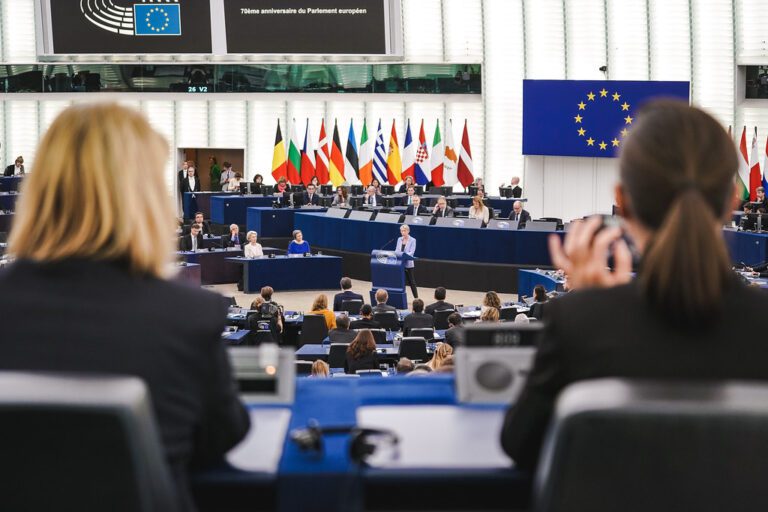
An effective EU China policy requires a critical mass of policy makers and practitioners who have studied China, its history, its political system and its language. We need them urgently. We cannot count on our universities to supply them because the tempo there is seldom fast or intensive enough.
Very few of our ambassadors speak or read Chinese and most have never served or lived in the country before. The situation is better in the lower ranks, but not by much.
China is difficult to understand and Chinese is hard to learn, but it is not rocket science. Hard work and common sense go a very long way. I propose an EU-funded “China school” modeled on the rigorous and goal-oriented military language schools existing in many member states (most of which have so far produced Russia specialists). These have demonstrated that it is possible to train students directly out of secondary school from zero to a working knowledge in Russian in a single year. Chinese is harder so probably two years of full-time and intensive training is needed.
Success in such an endeavor has two prerequisites. The first is a strictly merit-based selection of students. Any EU citizen should be eligible to apply but only the very best should be admitted. No quotas for gender, nationality or any other criterion should be set. The second requirement is that students who cannot keep up be eliminated. This is necessary in order to maintain the requisite tempo for those who remain. Military schools for Russian have a fairly low retention rate even though recruitment is selective to begin with.
Both factors – strict selection before and “winnowing” throughout – will ensure quality and also promote a sense of pride and self-respect among those who get through the course. If, as expected, students prove themselves on the labour market after graduation, it will give them prestige in the eyes of others too. In time this will make the school more and more attractive. What is needed, in short, is an elite, and we should not be ashamed to say so. The China challenge is real and the language is hard. A “China Corps” that is not an elite will be useless – or worse.
Graduates of such a school will form the backbone of China-related diplomacy in EU member states, in the Commission and in RELEX. Since the Corps thus produced has gone through a similar curriculum and in a similar fashion they will have developed a common frame of reference in which to discuss China. In the long run and as far as this is possible this will promote cohesion in the resultant EU policy.
Numerous practicalities will need to be worked out for an EU China School to become a reality. Only a few parameters will be sketched here. Language will obviously be the backbone of the curriculum. Particular stress should be placed on reading. The Chinese writing system makes it hard to develop reading ability to the point where it is possible to assess and scan documents quickly, even as this is probably the most relevant skill for understanding China today.
The purpose is not to produce interpreters or translators; other schools offer training in both. Courses will also be given in China’s history, philosophy, geography, political system, economy, armed forces, security services, influence activities, cyber warfare and the negotiation praxis of the Chinese Communist Party – including Chinese vocabulary and tropes for each. All courses must be goal-oriented. Knowledge for knowledge’s sake can and should be left to the universities.
Students will be also be required to learn about the EU and how it works.
The School should be EU-supported, and tuition free. Successful graduates should be promised preferred entry into the EU bureaucracy, but not obligated to accept such an offer. It is in the interest of the EU that graduates are spread outside the EU system: to business, science, technology and medicine, to the media, academia – and ultimately to politics. A successful China policy requires not only policy makers who know the country but a minimum of understanding of China among the citizens they represent. The China School will, one may hope, provide this also.
Lars Peter Fredén is a former Ambassador of Sweden to China. The text summarizes Mr. Fredén’s remarks at the international conference EU and China: From Strategic Partner to Systemic Rival, organized by the Association for International Affairs (AMO) in Prague on June 11, 2019, as part of ChinfluenCE and CHOICE activities.
Written by
Lars Peter Fredén
Lars Peter Fredén was an Ambassador of Sweden to China and Mongolia from 2010 to 2016. Before that, he served as a Security Policy Aid to the Prime Minister (1992-94), Deputy Chief of Mission in Moscow (1995-98), and head of the International Affairs Department at the European Space Agency in Paris (2003-06). He studied at Shandong University, Peking University, and Harvard.


